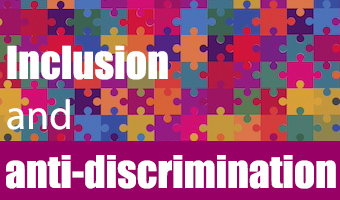"The quality of the counselling was very good, my privacy respected and my mental health improved. Corona-virus impacted me very badly and I needed this kind of support to move forward”, says Jan, a 28-year old gay man from Podgorica, who works in a private sector company as a consultant and who used to be a youth volunteer. Jan is one of the LGBTIQ community members who used free psychological and social support services offered by the Montenegrin LGBTIQ Centre, that has just finalised a three months-long project supported by the European Union and the Council of Europe.
This project is one of the three projects awarded to civil society organisations in Montenegro. Its aim was to meet urgent needs of LGBTIQ community arising from circumstances caused by COVID-19 and it was supported within the joint European Union/Council of Europe programme “Horizontal Facility for the Western Balkans and Turkey 2019-2022” and its action “Promotion of diversity and equality in Montenegro”.
Jan came to the LGBTIQ Social Centre for psychological support and ended up working with their psychologist and receiving social support as well. He acknowledged that both services helped him a lot, that is one of the reasons why he believes that this project should keep running in the future. “What can be improved is more of similar programmes and more time slots for work with the psychologist,“ concluded Jan.
LGBTIQ Social Centre has put direct communication with LGBTIQ community at the heart of their activities by providing free psychological and social support services, both at individual and group level.
Kora, a 24-year old student from Podgorica, who was using all above-mentioned services, shared her experience as well. A psychologist, whom she described as being useful, meant a lot to her, while socialisation with community members meant even more. Kora did not have any objections to the services provided but she believes that this kind of support should be available to the LGBTIQ community to a larger extent. Therefore, she suggested that projects tackling mental health of LGBTIQ people which include psychologists, psychiatrists and expert workers should be financed more in the future. "These projects helped me when I needed them and I am very grateful for that“ says Kora.
Mario, a gay man and a second-year student from the northern part of Montenegro has used individual psychological counselling services and described them in the following way: "While conversation with psychologist was something new to me, it helped me to solve certain dilemmas and problems I am facing... I will continue to visit her because I enjoy our conversation. I do not have any objections, everything is great“.
LGBTIQ community in Montenegro still faces numerous challenges in their everyday lives, one of them being hate speech and violent LGBTIQ-phobic behaviour. 2020 European Commission country report for Montenegro reveals that "more than 100 complaints of discrimination, hate speech and verbal abuse in media were lodged in 2019, but only one person was convicted in the same year for violent behaviour perpetrated in 2017." The latest report on hate speech published in October by the LGBTIQ Social Centre and the LGBT Forum Progres within the scope of this project confirms that strong institutional response is still missing in cases of reported online hate speech.
Monitoring report of the reported cases of hate speech and discrimination in the online space
*All the names mentioned in the article are pseudonyms.




